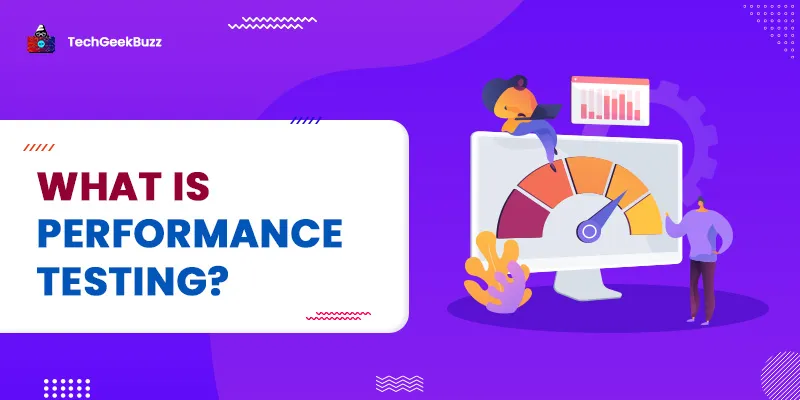Applications hosted on the web are not scarce. Their functional accessibility on multiple devices, protection for data, increased flexibility, and scalability makes them preferable. However, designing a web application that works optimally for a mass audience and possesses no constraint and malfunctioning on the networks of computers is no children’s play and needs a stringent framework of designing and testing.
Why Test a Web Application?
Testing a web application can detect possible faults and breakpoints in the application. This can elevate the performance of web applications, thereby giving them an upper hand over competitors and ensuring success in the real world.
Proper testing with optimum accuracy can confirm the presence of broken links, functionality faults, and loopholes in back-end code. It also helps in checking the working of apps in different ecosystems and real-world situations. The web application can be tested for different functionalities and scales to ensure its readiness for launch.
Some of the common web testing tools are:
Functionality Testing
These tools test web software for optimum functionality. Broken links, inner links, outsourced links, and landing links all are tested and assessed for any possible glitches. The tools bring automation to testing and increase efficiency and accuracy. Some of the functional or regression testing tools are:
- Screenster
- Watir
- Silk Test
- TimeShiftX
- CasperJS
Browser Compatibility Testing
Web apps having cross-browser compatibility get an extra advantage in the real world. Thus, almost every software ever designed is checked for cross-browser compatibility. There are a galore of tools available out there for this purpose. Some of the significant ones are:
- Ranorex
- Lambda
- Browserling
- IETester
- Browsera
Performance Testing
A check around various performance parameters is therefore important and recommended. One can do so by using any of the following ways:
- Load Testing
- Stress Testing
- Soak Testing
- Spike Testing
Common tools for performance testing are:
- WebLOAD
- Wapt
- Load Impact
- Loadster
- NeoLoad
Security Testing
Security and safety are paramount when it comes to web applications. It is necessary to check all applications for security and safety concerns before making them available to the public. Thereby, proper testing for security has to be done efficiently to mitigate any possible data leaks and data hacks from the software. Tools that can check the security of web apps are:
- Netsparker
- Nmap
- Acunetix
- Nessus
- SqlMap
Apart from these, there are also tools for usability testing, interface testing, and database testing of web applications.
Best Tools for Testing web applications
There are many tools available to check web applications with various focus points. Let’s move through the list of the best web application tools available that can assist, help and maintain efficient web app testing:
1. Katalon Studio
Friendly for novice as well as expert programmers, Katalon studio is available for both Windows and Mac users.
Features:
- Easy customization.
- Seamless integration with a variety of tools such as JIRA and Teamcity.
- Image-based testing availability.
- Visual representation for easy comprehension of test results.
- Can create test scripts, results, reports, and whatnot!
- Supports Java and Groovy scripting coding languages.
- It can support API and mobile testing as well.
- Special feature: Katalon Analytics; easy test reports with metrics, charts, and graphs.
Pros:
- Easy to install.
- Supports multiple integrations.
- Free version available.
Cons:
- The support facility is quite compromised.
- Absence of support for some specific languages.
- Had some performance issues in the past. However, the free version can be explored completely for assessing performance issues.
2. Ranorex Studio
Ranorex is a strong web application regression testing tool. It can run efficient tests in no time with complete accuracy and ease. It can be used as an all-in-one tool for testing mobile applications and web applications. Ranorex Studio automates the testing process by mitigating any stringent faults and providing reliable results.
Features:
- Supports tests through data and keywords.
- Can track and analyze UI elements of an application.
- Code-less setting up of automation tools; perfect for novice software techies.
- Supports integration with JIRA, Jenkins, TestRail, etc.
- A single license is required for multiple applications.
- Free 30-day trial available.
Pros:
- User-friendly interface for Windows, Linux, and macOS.
- Robust customer support.
- Versatile and reliable automation for testing.
Cons:
- Expensive license plans.
- Needs prior coding experience.
3. WebLOAD
WebLOAD is one of the best web application testing tools. It is an enterprise-level load testing tool. WebLOAD efficiently tests complex software in just a few simple steps and propounds no stringent difficulties. It provides comprehensive and impressive data on the performance and functionality metrics of the web application.
Features:
- Built-in integration for Selenium, Jenkins, and other significant tools.
- Supports DevOps testing.
- Easy reports to identify breakpoints of software.
- Can identify server-side and client-side values.
- Supports protocols such as HTTP/HTTPS, WebSocket, and PUSH.
- Has an Integrated development environment that provides easy identification, debugging, and management.
Pros:
- Compatible with Windows and Linux.
- Real-time tests viewing ability.
Cons :
- Doesn’t supports AJAX-based software.
4. Sahi Pro
It provides rapid automation to web app testing. Sahi Pro is a functional testing tool that can test web-based applications on various dynamics, ensuring optimum performance after their launch in the real world.
Features:
- Supports cross-browser testing of easy to complex applications.
- Robust API support.
- Supports parallel playback.
- Automated logging and reporting.
- An easy-to-setup framework.
Pros:
- Compatible with iOS, Android, hybrid, and native web applications.
- 30 days free trial available.
- Suitable for AJAX and dynamic applications.
- It can run on any browser that supports JavaScript.
Cons :
- Cases of Sahi Pro crashes during multiple test processes have been reported.
5. Lambda Test
It is a scalable cross-browser testing tool for web applications. Lambda Test is efficient and screens applications for any possible faults and provides data in an easy, comprehensive, and adaptable manner.
Features :
- Supports 2000+ browsers.
- Faster and reliable testing.
- Can test locally hosted pages.
- Has an inbuilt issue tracker that scans applications for any issues or breakpoints.
- Can test display for resolution issues.
- Provides geolocation testing.
- Can integrate with JIRA, CI/CD tools, and many more.
Pros:
- Free trial available for 5 users.
- Can check for responsiveness of software.
Cons:
- No mobile application testing.
- Unavailability of testing on real devices.
6. Watir
Stands for W eb a pplication t esting i n R uby. Watir works as a library for Ruby-based automation tests. It is an open-source platform for testing web applications and provides results in a comprehensive, readable manner.
Features:
- Supports multiple browser testing on different platforms.
- No stringent dependence on technology.
- Performance is efficient and promising.
- Makes web application testing a cakewalk with proper automation.
Pros:
- Available on RubyGems.
- Has inbuilt libraries to access web applications’ performance
Cons:
- Doesn’t support mobile application testing.
- No compatibility with macOS, iOS, and Android.
7. Serenity BDD
Fastens the process of writing automation tests for web applications. Serenity BDD is open-source and readily available for installation.
Features:
- Easy maintenance.
- Enables easy and quick collaboration among teams.
- Quick test setup.
- Presents testing progress on interactive dashboards.
- Maps tests with initial requirements.
- Presents image-based reports for a better understanding of the results.
Pros :
- Can target test runs on specific areas of functionality.
- Uses domain-specific language.
Cons:
- Documents should be maintained properly; they need manual management.
- Takes time to write automation codes.
8. Soap UI
It provides easy testing for web apps, REST and SOAP APIs. Soap UI eliminates manual efforts in functional testing of web apps and elevates the accuracy, efficiency, and reliability of software tests.
Features:
- Supports asynchronous testing.
- Handles complex scenarios in a few simple steps.
- Can test bugs in an application in just a few steps
- Data-driven testing.
- Supports “drag and drop” and “click and point” approaches.
Pros:
- Allows the import of WSDL.
- Can reuse scripts.
Cons:
- Poor identification of error sources.
9. Apigee
It allows easy measurement and analysis of the performance of web applications, API, and more. Apigee is a cross-cloud API testing tool.
Features:
- Powered by JavaScript.
- Identify issues by easy error tracking, the response time of web applications, and any possible performance glitches.
- Easy integration with browsers
- Supports IoT solutions.
Pros:
- Easy development of proxy and APIs.
- Easy to use console.
Cons:
- Debugging is difficult.
- Allows only one active user at a time.
10. Netsparker
Netsparker is a commercial web app testing tool. It scans applications for security and safety. Its accuracy and speed make it win the races in no time. Netsparker double verifies the faults in applications and, thereby, eliminates the process of manual verification of reported anomalies.
Features:
- Anomalies verification.
- Reporting.
- Complete support for html5.
- SDLC integration.
- Detects 404 error pages automatically.
- Supports anti-CSRF token.
Pros :
- Eliminates the need for manual verification of errors.
- Easy integrations for seamless testing of applications.
Cons :
- Unavailability of documentation and tool guides.
Putting It All Together
Are you a web application programmer? If yes, you better imbibe a comprehensive approach to testing your applications for complete functionality, security, management, and whatnot! The tools available make it all easy, automated, and efficient.
Manual testing of web apps is a thing of the past. Today’s tools make it just a matter of clicks! While there are tools for testing specific verticals, general tools can also run various tests and provide free customization to programmers and engineers to access their applications on numerous functionalities.
Leverage the tools mentioned above and design a web app optimized for functionality, management, security, and compatibility.
People are also reading:
![Top Web Application Testing Tools [Website Testing Tools]](/media/new_post_images/Best-Tools-for-Web-Application-Testing.webp)


![What is Waterfall Model? [Phases, Pros, & Cons]](/media/new_post_images/Waterfall_Model.webp)

Leave a Comment on this Post